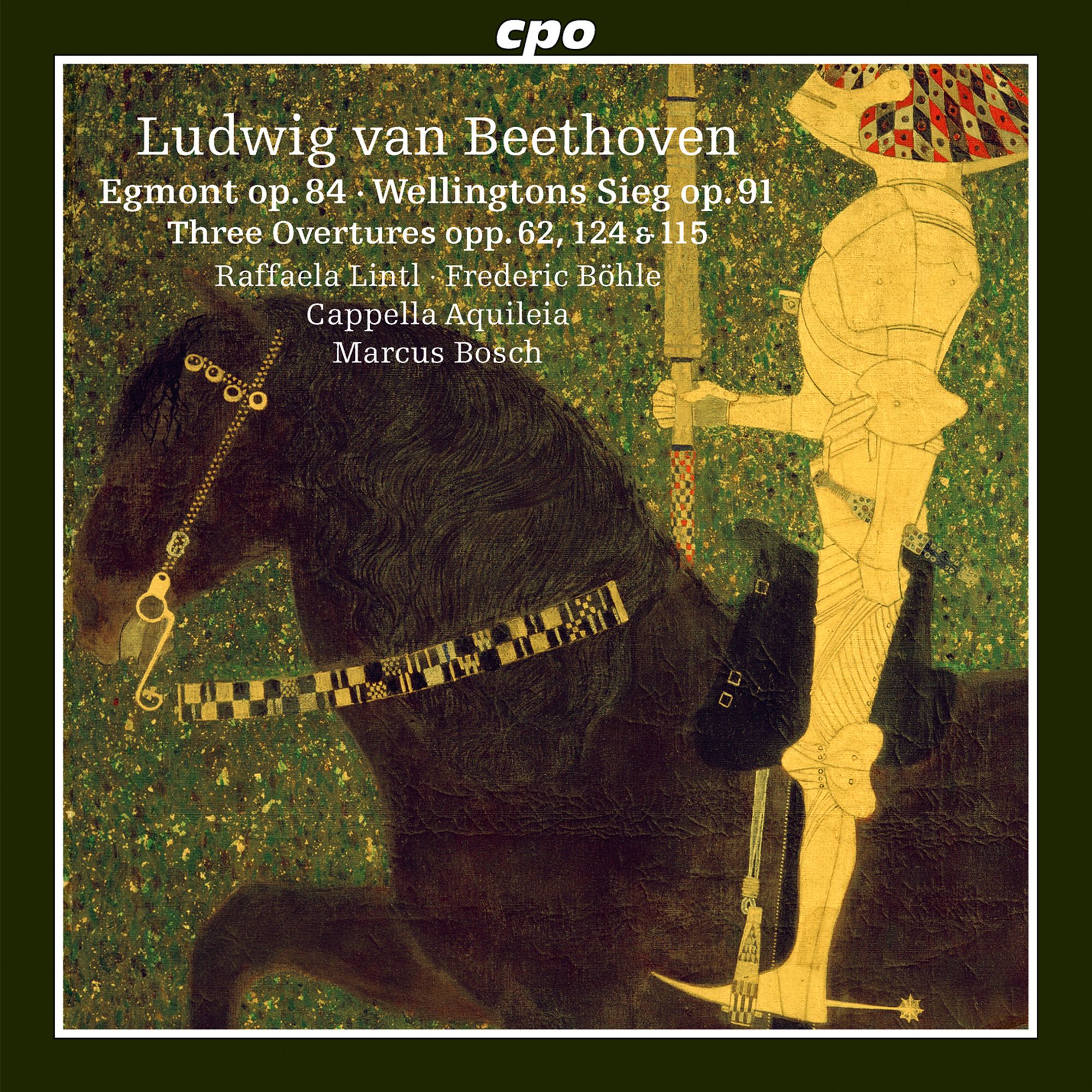Beethoven Egmont - complete incidental music, and more ...
A brilliant disc that combines some of the lesser-known works of Beethoven

Beethoven's Egmont Overture is one of his most famous overtures - and yet how many know the incidentla music to the play it prefaced? Georg Szell made a fascinating recording many years ago (with soprano Pilar Lorengar and the Vienna Philarmonic); here is its modern equivalent, on period instruments. Interestingly, the sense of leanness was there, too, in Szell's account (you can hear both below):
The Capella Aquileia in this new cpo release is incredibly on the ball and involved with every nuance of the music, even if it is clearly pictorial-gestural in the slighter movements. The soprano here is Raffaela Lintl, who can give Lorengar a run for her money in "Der Trommel gerühret":
... she is superb, too, in "Freudvoll und Leidvoll," even less well-known than the above but fully worthy of our attention:
The narrator (who speaks in German) is Frederic Böhle. It is fascinating to hear how spoken voice and orchestra interact: Beethoven's genius in this regard is beyond doubt (one need only think of the dungeon scene in Fidelio/Leonore). More, as one listens there is some sense of cumulative energy that starts (from around track 10) to lead towards the end, the so-called "Victory Symphony" - which recurs in the final section of the Overture.
That sense of blazing intensity suffuses Bosch's Coriolan Overture, another overture to a play (by Joseph von Collin - this is not Shakespeare's Coriolanus!). How close we are here to the C minor of the Fifth Symphony, and the Cappella Aquileia account simply blazes:
I do want to quote the Overture Die Weihe des Houses (The Consecration of the House, Op. 115), a piece written for the opening of the theatre at Vienna's Josefstadt. Overtly celebrational, it exudes humanity but also many of its passages are incredibly memorable. I can count on the fingers of one hand how many times I have heard this piece live (I might only have to raise one finger in fact). Why?:
While the Overture Zur Namensfeier is of a similar ilk in terms of celebration, it was actually written for the Name Day of the Emperor. Here I cannot even raise one finger to count live performances heard, but I wonder, dare I say it, how deserved that is? It strikes me as of at a lesser rung of the ladder of Beethoven's inspiration. See what you think:
How wonderful, though, to have another lesser-known "symphony". Not a battle one this time, but a victory symphony: Wellingtons Sieg oder Die Schlacht bei Vittoria, Op. 91 (Wellington's Victory at the the battle of Vittoria). The place Virrotia is in Spain, and is where Wellington's army defeated the French, a pivotal point in the Napoleonic Wars. Beethoven's piece is split into two movements of very uneven duration: "Die Schlacht" (around eight minutes) and "Sieges-Symphonie," (1"25). It is also great fun, which might sound like damning with faint praise, but it remains true that compared with any of the "Holy Nine" symphonies, this disspates out of existence. Taken on its own merits though, who can resist Beethoven's opposition of melodies associated with both sides: "Rule Brittania," and we have a French tune that sounds remarkably like "For he's a jolly good fellow". Hard-sticked timpani invoke cannon fire (toy-like rattle sound in the background is gunfire!). Interesting that at the premiere, the two sets of drums were played by Hummel and Meyerbeer, while Salieri acted as off-stage conductor. There's a real sense of over the top joy here, and perhaps the booklet notes are right to reference the Storm in Beethoven's "Pastoral" Symophony:
... and then comes the victory, with its opening crash and move to triumph, including a statement of "God Save the King" which ends with a delicious harmonic twist:
A brilliant disc that combines some of the lesser-known works of Beethoven (and there's room for a second volume at least ....). Recommended to the Beethovenly-curious.
